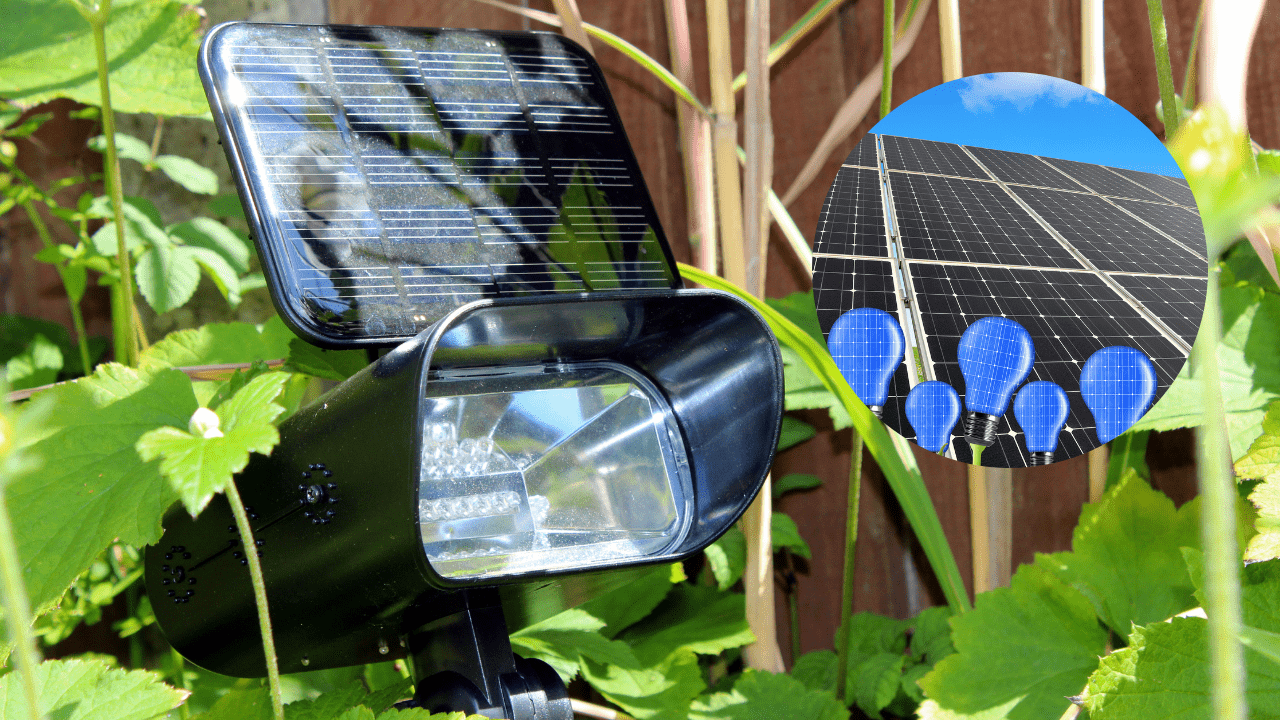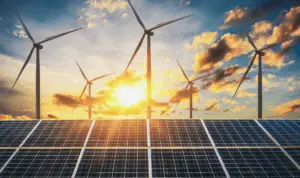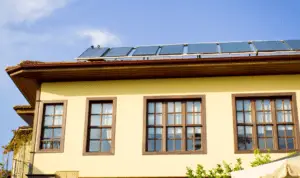In this post, we shall discuss the query: are solar lights good for plants and other related topics? Light quality plays an important role on plants. It affects their growth in more ways than one. Commonly, sunlight is the best source of light. Yet, in the absence thereof, artificial light can be used. It may be advisable on plants placed indoors since they do not receive much sun light.
Are solar lights good for plants?
Solar lights may be used for indoor-based plants to substitute direct sun light. Although between solar lights and natural one, it is undeniable that the latter is better than the former. Despite that, in cases where there can be no adequate source of natural light for plants, a solar light can be used as a substitute.
Solar lights, therefore, can be a good source of light for plants, especially those that are cultivated indoors or during rainy or winter seasons. Likewise, when you feel that you should give light to your plants at night time, an artificial light, such as solar, may do the task.
One of the factors to be considered in choosing which light is appropriate for your plant is identifying its intensity that your plant needs. For instance, some other plants require a more intense light than others.
Outdoor sunlight is intense but when plants are placed inside a house near the window, the intensity of light is reduced. This is so because of the window filtering the sunlight, more so, if it is tinted.
Also, plants inside a house do not always get exposure to the sun as the direction of the light changes from time to time. This is not the case in plants set outside a house, where direct and long exposure may be obtained.
On the other hand, plants requiring less light will be best placed inside the house and under an artificial light. With the use of artificial light, the amount, which a plant receives, can be controlled.
Should I put solar lights in garden?
Plants placed in a garden will not actually need solar lights since they are located in a place where direct sunlight is available. However, solar lights can also be installed in such places in order for the plants to receive light even during night time.
Solar lights are light-providing devices. This type of device absorbs energy from the sun, and then it produces light at night time using the collated energy. This device has a mechanism where it determines when the sun goes down and automatically provides light when it is dark.
Solar lights in the garden does not only give lighting for the plants; it also helps illuminate one’s garden. In a way, it is more convenient than having a wired light in a therein. Thus, in choosing between having a solar light in garden or not, it is obvious that the former is better.
Do solar garden lights help plants grow?
As mentioned earlier, solar lights, when used properly and strategically, may play an important role in the growth of plants. Plants, although placed in a garden, do not necessarily receive the amount of light they need. Some plants require a great deal of light intensity and long exposure duration thereto, while some do not.
In cases where a plant located in a garden needs long exposure to the sun and a great intensity of light, placing solar lights would be beneficial and may complement the deficiency.
If a specific plant placed in a garden requires ample sunlight, it is not guaranteed that they may be able to receive such, even if placed in a garden. This is because sunlight changes direction from time to time and at night time no amount of light will be available.
Installation of solar lights in garden can fill this apparent gap. This will allow the plants to receive lights when the sun sets down, thereby, providing the plants the light they need in the absence of sunlight.
Can you put solar lights in flower pots?
There are various ways on setting up solar lights, either in garden or indoor. One of the ways to set up solar lights is by putting it in flower pots. There are steps available across the internet about putting lights in flower pots.
Flower pot is actually a container where a plant is placed, cultivated and grown. Commonly this container has small holes at the bottom to allow excess water to flow out. Although commonly used as a pot for growing plants, planters have devised different ways to use this flower pots in setting up solar lights.
Easy steps
In setting up solar lights in flower pots, you can try some easy steps available. Let me provide easy guides on setting up lights on flower pot.
- First, is by preparing different sizes of flower pot.
- Second is by putting a hole at the bottom of the flower pot for drainage, this is an important step.
- Third is putting the soil to the flower pot.
- Fourth, place the medium pot above the large pot.
- Fifth, place the small pot into the center of the medium pot then start placing the plant keeping in mind not to overcrowd the plants.
- Lastly, place the solar light bulb at the center of the small pot and don’t forget to use superglue to attach the pots with each other.
Does landscape solar lighting harm plants?
Landscape solar lighting does not necessarily harm plants. Nevertheless, we have to keep in mind that light is not only the factor which affects the growth of the plants. Light is only one of them.
Some other components are water, the use of fertilization on the plants, the soil type where the plant is planted, and the temperature. Thus, although providing enough light to the plants, it will not necessarily guarantee their growth.
Landscape solar lighting is not only for the benefits of the plants. It is also being done for the purpose garden illumination. Landscape solar lighting may influence plants’ growth. The duration and intensity of light may be key elements. On the other hand, in some other instance, long, unabated, and unwarranted exposure to light can also harm the plants.
Exposure to light from garden lights can result to light pollution. The daily rhythm effect gets disturbed in instances where plants receive continuous amount of light. The exposure to artificial light may deprive the plants of the time to rest and repair, which commonly occurs at night.
Does solar light affect photosynthesis?
When Photosynthesis occurs, the plants acquire energy from light and transform the same into chemical energy. Photosynthesis is an essential cycle affecting the growth of plants. As a consequence, then, light contributes to the growth of plant and so does solar light.
Photosynthesis is the process whereby plants utilize sunlight to synthesize foods from carbon dioxide and water. It produces pigment chlorophyll and generates oxygen as a byproduct.
Then, the plants take air and water from the soil. Inside the plants, it transforms the water it absorbed into oxygen and release the same into air. It also converts the air it took to glucose which stores energy within the plants.
Photosynthesis can be light-dependent reaction or light-independent reaction. The first one requires a constant flow of sunlight while the other does not. Plants having photosynthesis which is light-dependent can be helped by the use of solar lights.
How to choose solar garden lights for plants?
There are various solar lights available for plants. In choosing which solar light best suit your plants, it may be important to consider some other factors. The most significant one is whether the plants require great amount of light.
Other factors are the balance of light, the quality needed by the plants, duration of exposure, and signs of insufficient light and temperature. It would be better to have the plants exposed to artificial light for 16 to 18 hours daily if such are not experiencing direct sun rays.
For plants indoor or those which receive light from window may require additional exposure to light. A light through a window is not as intense as that of the sunlight.
Yet, plants also require period of darkness. With the use of solar lights, the amount of exposure to light can be controlled.
Do solar lights have harmful effect on plants?
It cannot be denied that light plays an important role to the growth of the plants. In spite this, as discussed above, plants also need a period of darkness. This moment for plants allows them to rest and repair themselves.
Thus, continuous exposure to light would exhaust the plants and could result to its internal damages. Using solar lights, the length of exposure of the plants to light is controlled. There are different solar lights available across the internet.
A plant grower can choose which type of solar light could be beneficial to the plants or which type of solar device could supply the amount of light a plant needs but not exceed the required exposure.
Conclusion
In sum, light is important to plants either in a garden or indoor. Light also plays an important role in photosynthesis which is a process affecting the growth of plants. Nonetheless, it must also be noted that light is not the sole factor in the growth of plants.
There are also other factors, like soil, water, fertilization and temperature. These components must be balanced with each other. Similarly, a continuous exposure to light may sometimes be harmful for plants. They do need moments of darkness for them to repair damages and rest.
With the use of solar light, the amount as well as the exposure of plants to the light may be controlled. Consequently, it can be said, that nowadays, solar light is important in plant-growing.




